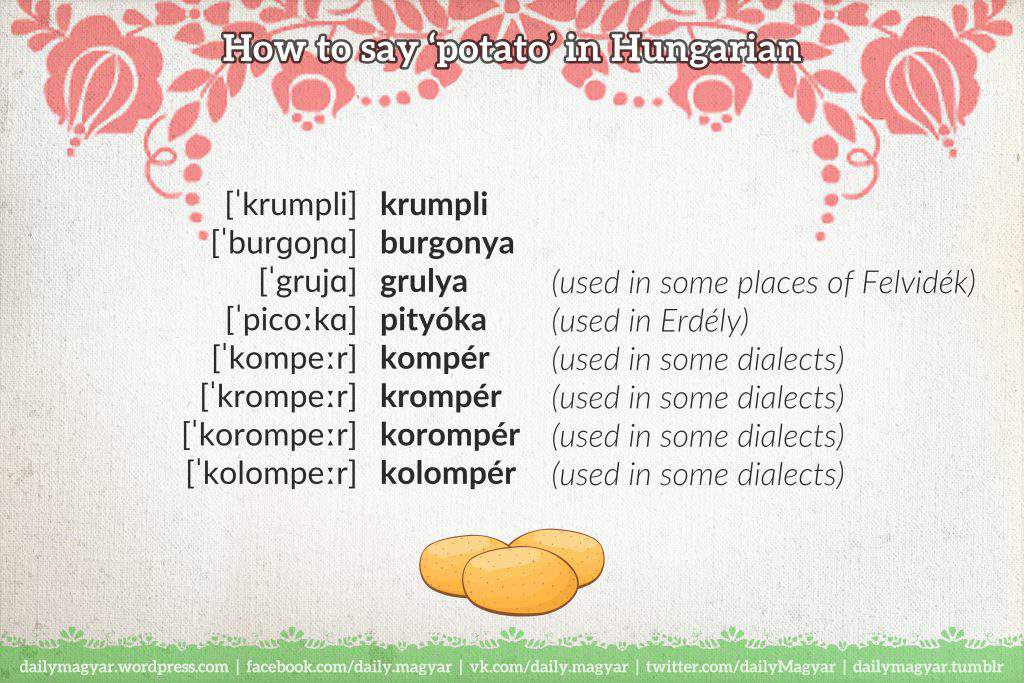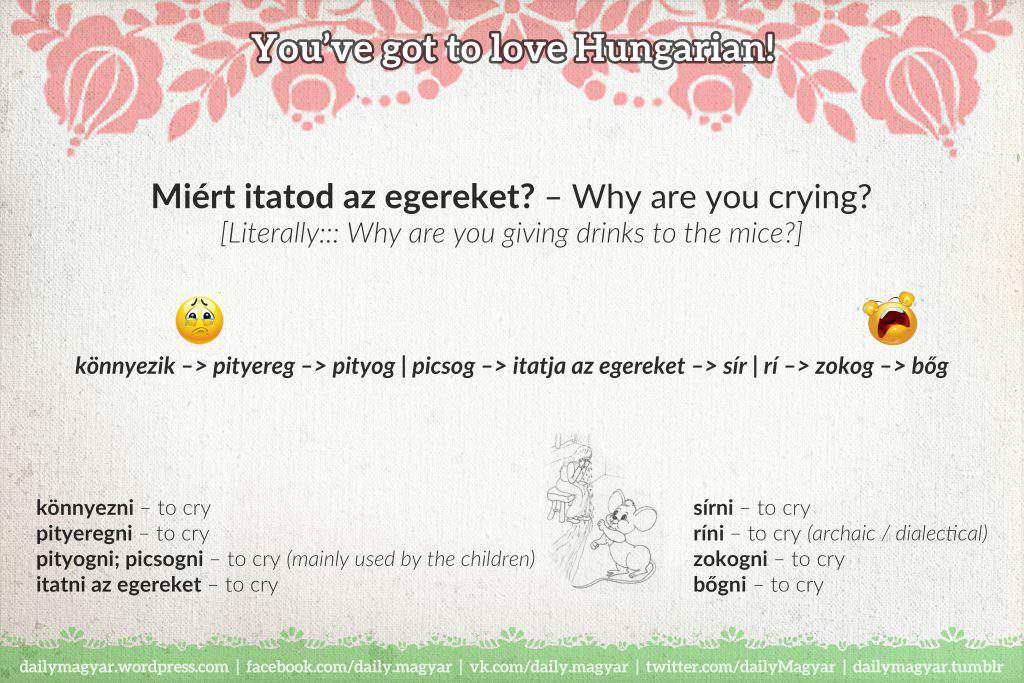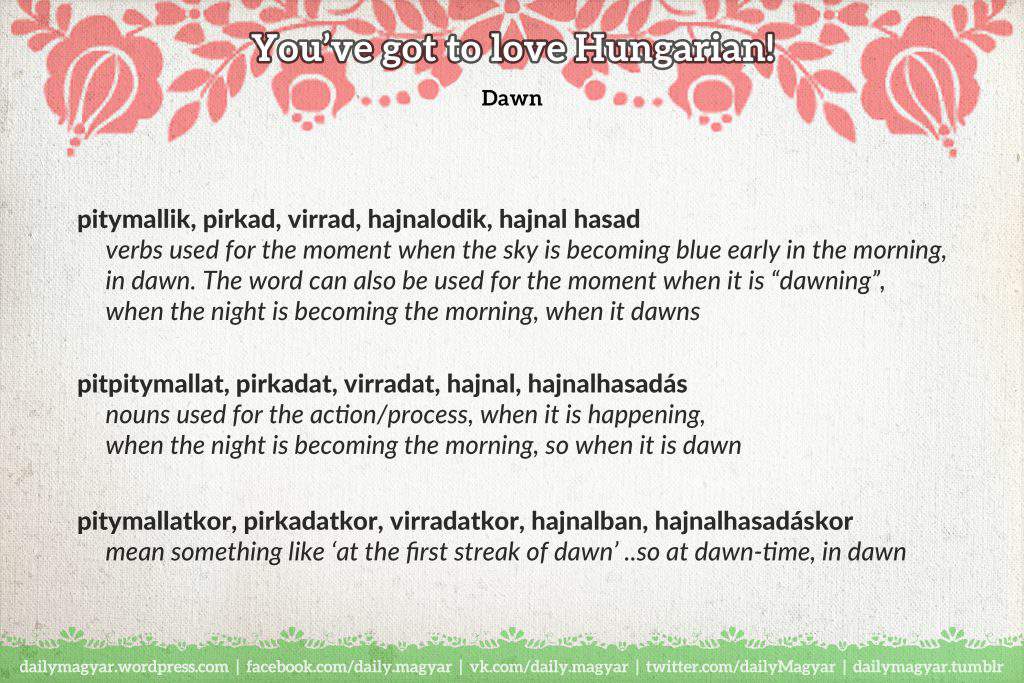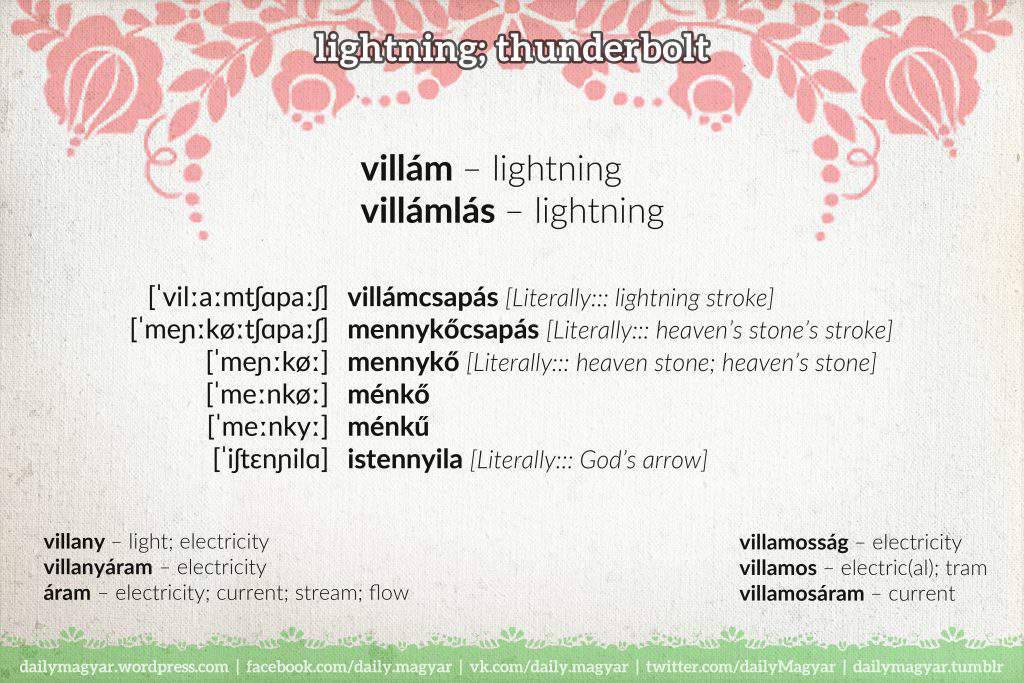Mini language lesson #22: Diverse Hungarian words

Change language:
It might seem like we are just going on and on about how complicated our language is, but when coming up with new ideas for this series, we always realise that Hungarian is undoubtedly one of the most difficult languages of the world. This time, we collected some words that can be expressed in many different ways.
Most of the variations include formal, informal, childish, dialectic and slang options for expressing yourself. While the informal and slang versions are always useful to know, the dialectic and childish options serve as orientation.
Keep in mind that we are not linguists in any way, we’re just as dazzled by the curiosities of the Hungarian language as foreigners are. So this series doesn’t aim to explain the etymology of words, it’s more of a fun take on our language. We try to bring Hungarian closer to you with witty learning cards made by Daily magyar, a language-enthusiast person, whose posts give an insight into the complexity of Hungarian grammar. But don’t worry, it’s all done in an easy-going way so that it can make learning fun.
Let us start with a handy word that you are guaranteed to encounter while eating out or shopping for groceries: potato. The most common versions are krumpli and burgonya, however, as you can see in the photo below, different dialects use different words.

Next up is another practical word that forms part of our everyday life: shoe and some sub-categories. The most commonly used expression is cipő, but it also has a more formal pair: lábbeli.
cipő – shoe
cipellő – shoe (rather used for shoes for women)
lábbeli – shoe à “lábbeli” is a nice word that means “your foot should be put in there” or “your foot belongs there”, “lábbeli” is like the archaic version of the not-really-used word “lábbele”
csuka – shoe (used in slang)
félcipő – shoe; (oxford shoe)
topán; topánka – shoe (used in slang)
szandál – sandal
saru – sandal
Sticking to useful words, one of the topics that is guaranteed to arise soon in a different country is going to the toilet. Luckily, the Hungarian language has several creative ways to say ‘toilet’, but keep in mind that most of these are funny slang versions, only the first few are used commonly.
mosdó – sink or toilet; bathroom (formal)
illemhelyiség – toilet (formal) [Literally: decency room]
mellékhelyiség – toilet (formal)[Literally: lateral/side room]
WC – toilet/ vécé – toilet
kétbetűs – toilet (slang) [Literally: the two-lettered; the one with two letters]
kétbetűs kitérő – toilet (slang) [Literally: the two-lettered by-pass/escape]
árnyékszék – toilet (slang) [Literally: shadow chair]
klotyó – toilet (slang)
budi – toilet (slang)
büdöslyuk – toilet (slang) [Literally: stinky hole]
klozet – toilet (slang)
slozi – toilet (slang)
retyó – toilet (slang)
pottyantós – toilet; earth closet (slang)
vizelde – toilet (slang) [Literally: where one can urinate]
körguggolda – toilet (slang) [Literally: the rounded place where one can squat]
megkönnyebbülészeti körguggolda – toilet (slang)
[Literally: the rounded place where one can squat and gets relieved]
A hely, ahová a király is egyedül jár. – toilet (slang) [Literally: The place, where even the king goes alone.]
A hely, ahová a király is gyalog jár. – toilet (slang) [Literally: The place, where even the king goes on foot.]








